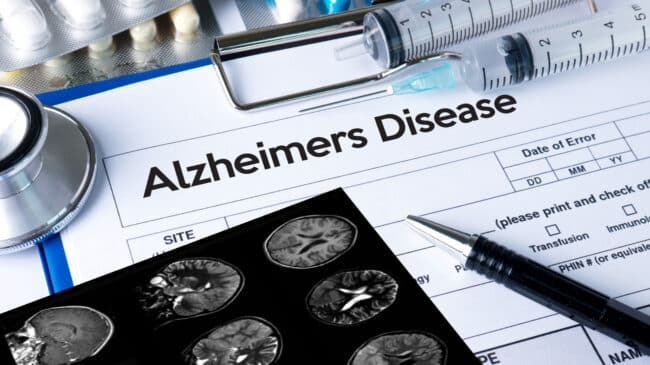Psychedelic therapies have been in the news recently as a tool to help improve mental health. But psychedelics may also prove valuable in treating other chronic, difficult health problems. Emerging research shows that psychedelic substances may be a promising treatment for major neurodegenerative conditions, like Alzheimer’s disease, that affect millions of American households.
Alzheimer’s disease is relentless and incurable. In 2020 and 2021, Alzheimer’s was the seventh-leading cause of death in the U.S. Today, nearly 6.9 million Americans aged 65 and older suffer from Alzheimer’s, facing a progressive decline that current treatments cannot stop or reverse. If breakthroughs in treatment or cures remain out of reach, the number of people affected is expected to double, reaching a staggering 13.8 million by 2060.
The financial burdens Alzheimer’s imposes are immense. In 2021, Alzheimer’s and other related dementias cost the United States around $607 billion (adjusted to 2020 USD). About $257 billion was attributed to informal (unpaid) caregiving. In 2023, more than 11 million Americans provided an estimated 18.4 billion hours of unpaid support, valued at about $347 billion.
Unfortunately, current treatments are ineffective at mitigating these costs because they fail to address the underlying causes of Alzheimer’s. At best, they provide only temporary symptom relief. Worse, they come with a considerable risk of adverse effects and declining quality of life, and further rising costs.
Psychedelics, particularly psilocybin and LSD, show promise as a new approach to treating Alzheimer’s by addressing one of its primary drivers: chronic brain inflammation. Studies suggest these substances could reduce harmful inflammation in the brain, helping to create a healthier environment for brain cells to survive and function. Psychedelics appear to calm overactive immune cells in the brain, which in Alzheimer’s can cause permanent cell damage. This anti-inflammatory action may help preserve cognitive function and slow the disease’s advancement.
Additionally, psychedelics have shown an ability to stimulate the brain’s natural flexibility, or neuroplasticity (the brain’s ability to adapt and reorganize itself). Psychedelics may increase brain cell communication, a change that may have lasting effects in preserving mental clarity and cognitive function.
Integrating psychedelics into standard care practices could provide real relief, as they target the underlying causes associated with Alzheimer’s. However, it’s equally important that psychedelic therapy is implemented in a safe and effective way. State-regulated psychedelic-assisted therapy (PAT) provides a structured, controlled environment where treatments can be administered under clinical supervision. These types of clinics, which already exist in Oregon and Colorado, allow for delivery of therapeutic practices and detailed data collection, ensuring consistent monitoring and evaluation of treatment protocols.
Data from state-regulated PAT centers can offer insights into the safety and effectiveness of psychedelics, helping to address regulatory and medical questions early on. These findings could speed up the process of integrating psychedelics into mainstream treatments and lay the groundwork for larger clinical trials.
The U.S. Food and Drug Administration (FDA) has already acknowledged the promise of psychedelics, awarding “breakthrough therapy” status to treatments involving substances like psilocybin and LSD for certain mental health conditions. The FDA might also award this designation to psychedelic treatments for Alzheimer’s and thereby accelerate the pathway to full approval of these therapies. By generating reliable early data, state-regulated PAT centers could bridge the gap between early research and widespread clinical adoption while making these novel treatments accessible to patients sooner.
There’s a clear need for therapies that slow disease progression, reduce long-term care requirements, and alleviate burdens on families, caregivers, and society. State legalization and regulation of psychedelic-assisted therapies could facilitate early data collection and yield a transformative shift in Alzheimer’s disease treatment. More states should embrace these options. With continued exploration, psychedelics may pave the way for a more effective, compassionate approach to Alzheimer’s.

